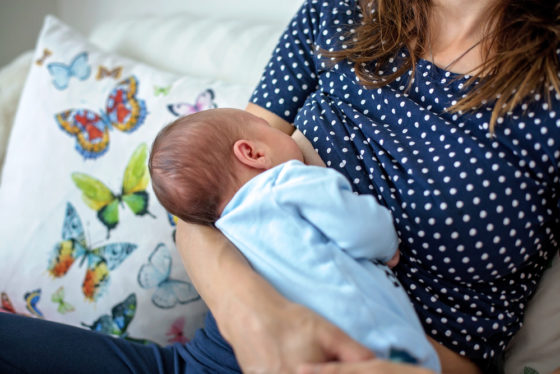Dutch women’s income almost halves after birth of first child: CPB


New mothers in the Netherlands lose an average of 46% of their income after the birth of their first child but there is no knock-on effect on the income of fathers, according the government’s socio-cultural think-tank CPB said on Tuesday.
The drop in the mother’s income is largely due to them working fewer hours, the CPB said in its analysis of what is known as the ‘child penalty’, published in economists’ magazine ESB. ‘Traditional role patterns, in which women take on more care tasks than men, can have a role in this,’ the CPB said.
Women with an immigrant background lose less income than the native Dutch, unless they have Moroccan or Turkish roots. Women who regularly attend religious events – church or a mosque – are also more likely to have a lower income, the CPB said.
‘This could be because religious involvement often combines with more traditional gender roles, and that has an impact on the child penalty,’ the article states.
By contrast, women with a college or university education, lesbian couples and mothers working for the public sector are less likely to cut their hours after the birth of their first child.
The average drop in income women in the Netherlands are faced with is relatively large compared with Denmark and Sweden, but smaller than that in Austria and Germany, the CPB said.
Some 74% of Dutch women do not work the standard 40-hour week – on average they work just 28 hours.
The CPB will publish a more detailed study on the child penalty impact in the Netherlands next year.
Thank you for donating to DutchNews.nl.
We could not provide the Dutch News service, and keep it free of charge, without the generous support of our readers. Your donations allow us to report on issues you tell us matter, and provide you with a summary of the most important Dutch news each day.
Make a donation